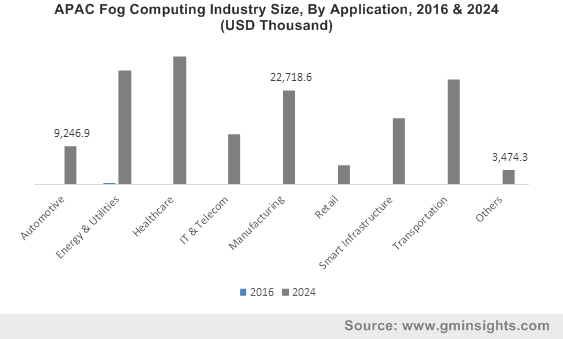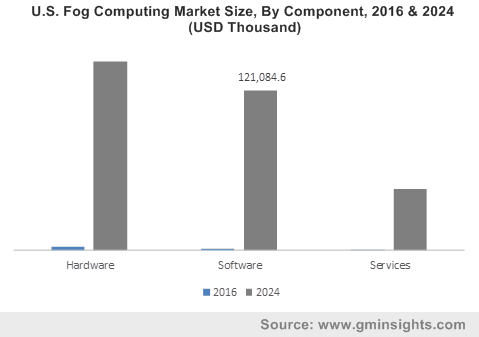Home > Media & Technology > Information Technology > Cloud Computing > Fog Computing Market
Fog Computing Market Analysis
- Report ID: GMI2295
- Published Date: Dec 2017
- Report Format: PDF
Fog Computing Market Analysis
The services market will grow at a CAGR of over 70% owing to the increasing adoption of cloud computing platforms among industries. Since organizations are shifting their entire infrastructure into the cloud, professional services help to minimize the overall cost of operations in organizations by eliminating the maintenance expenses of physical IT infrastructures and staff hiring costs. The managed services market will observe the fastest growth rate due to the growing popularity of outsourcing strategic management functions and responsibilities to third-party service providers.
The Fog as a Product (FaaP) deployment model is anticipated to grow at a CAGR of over 60% from 2017 to 2024. The growth of the market is attributed to robust functionality and superior data security provided by the FaaP product. However, high capital requirements and increasing needs to reduce operating costs are some of the major constraints in the fog computing market demand.

The automotive application segment is expected to exhibit a growth rate of over 65% due to the rising usage of fog computing solutions to support the development of connected cars. The connected cars display a rich set of interactions and connectivity from cars to cars, cars to access points (such as smart traffic signals, roadside units), and access points to access points. Fog computing demonstrated various features that make it an ideal platform for delivering a wide range of Smart Connected Vehicles (SCV) services in traffic support, safety, mobility & location awareness, heterogeneity, real-time interactions, and low latency.
The MEA fog computing market is predicted to grow at a CAGR of over 60% due to the proliferation of IoT platforms and the heavy adoption of cloud computing among enterprises to improve their efficiency. The increasing digitalization in the region is also estimated to drive market growth. The government initiatives are also playing a vital role in the growth of industries. Several Middle East countries have adopted different strategies, visions, and initiatives to increase the adoption of technology and digitalization in the region. For instance, the UAE’s National Innovation Strategy focuses on the development of smart cities and smart buildings. fog computing fog computing software is also estimated to accelerate the market growth.

